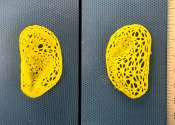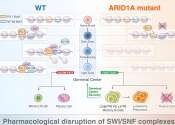New atlas of mRNA variants captures inner workings of the brain
Investigators at Weill Cornell Medicine have assembled the most comprehensive atlas to date of messenger RNA (mRNA) variants in the mouse and human brain. The atlas is an important new resource in understanding brain development, ...
Apr 9, 2024
0
21









